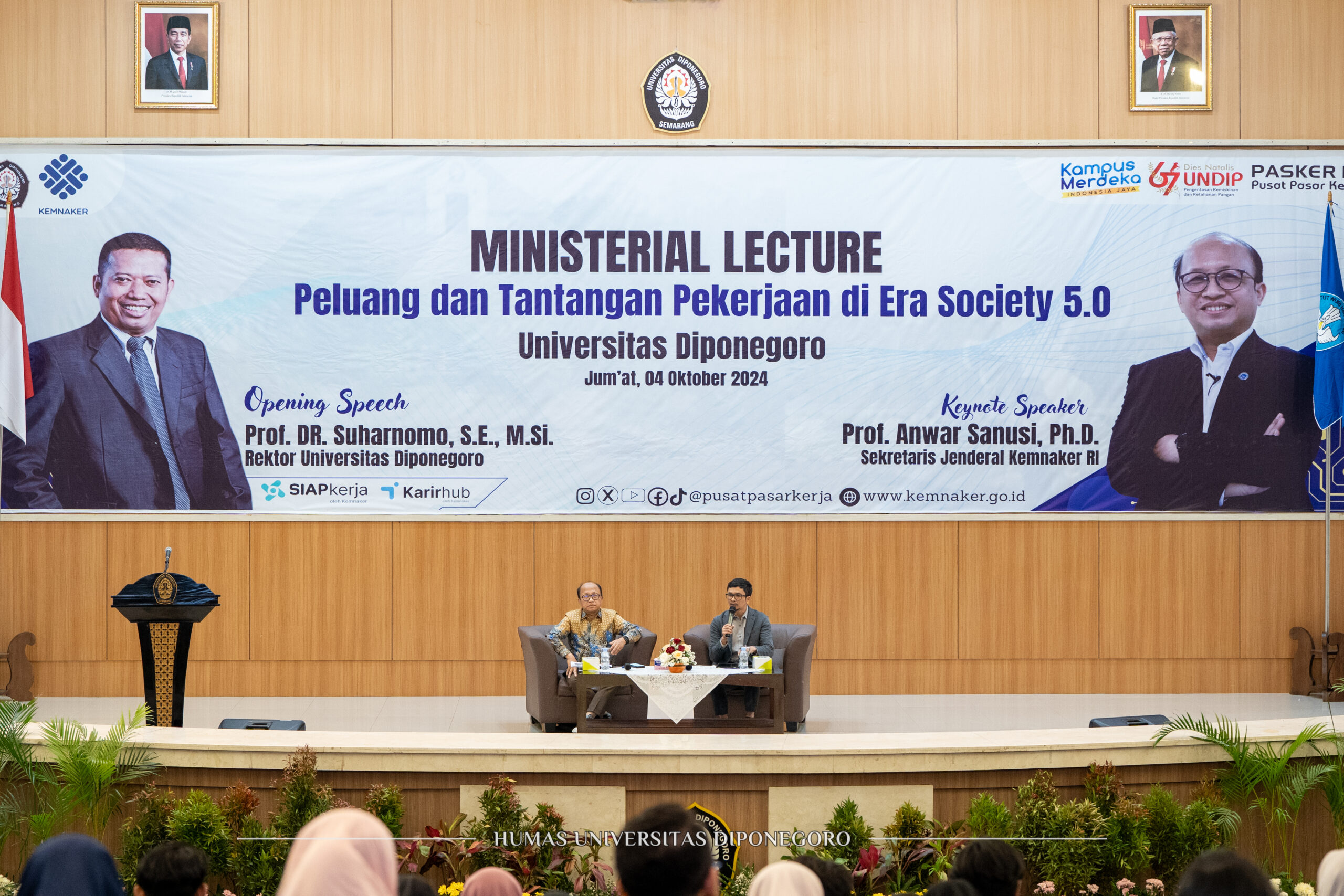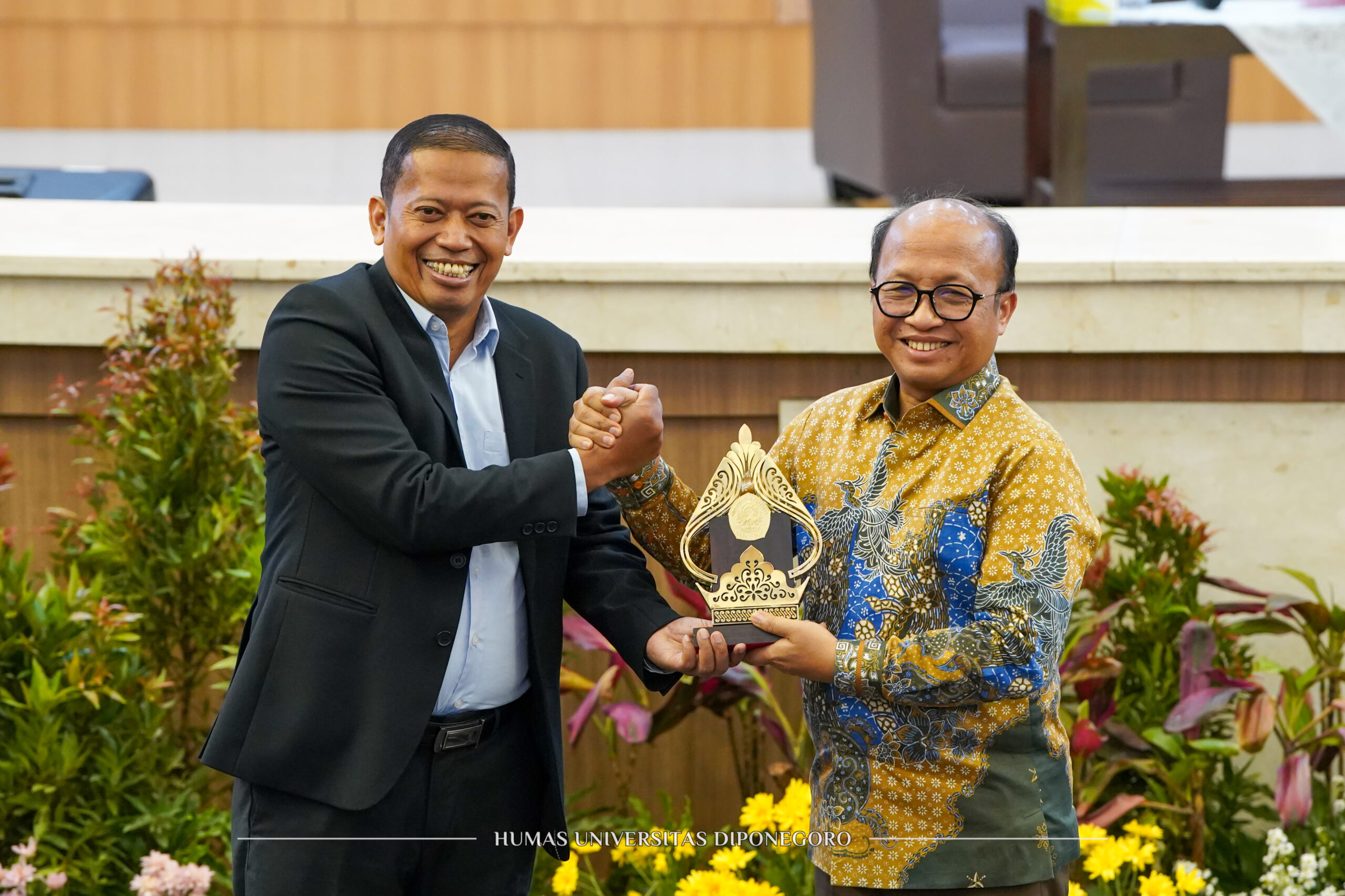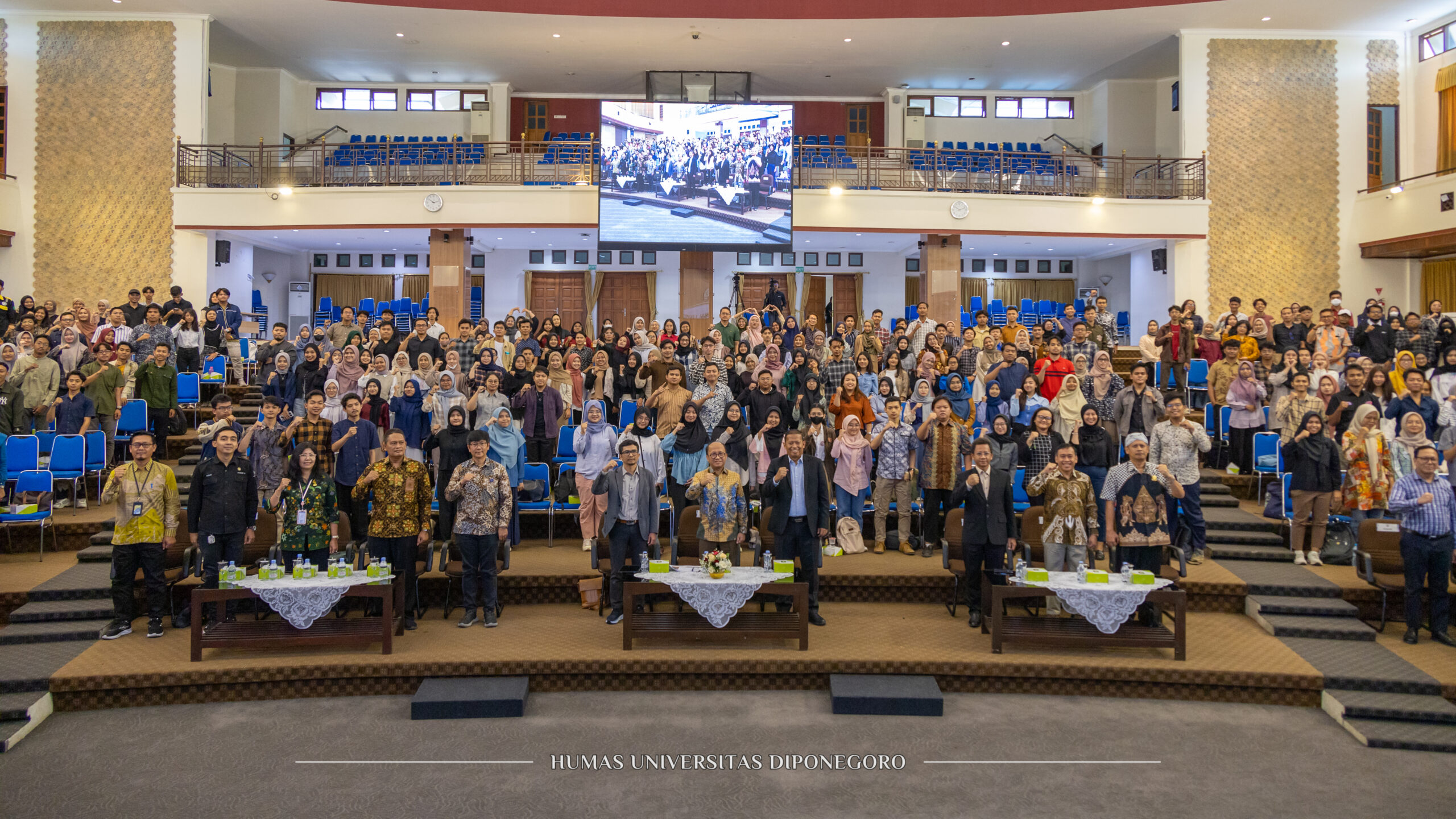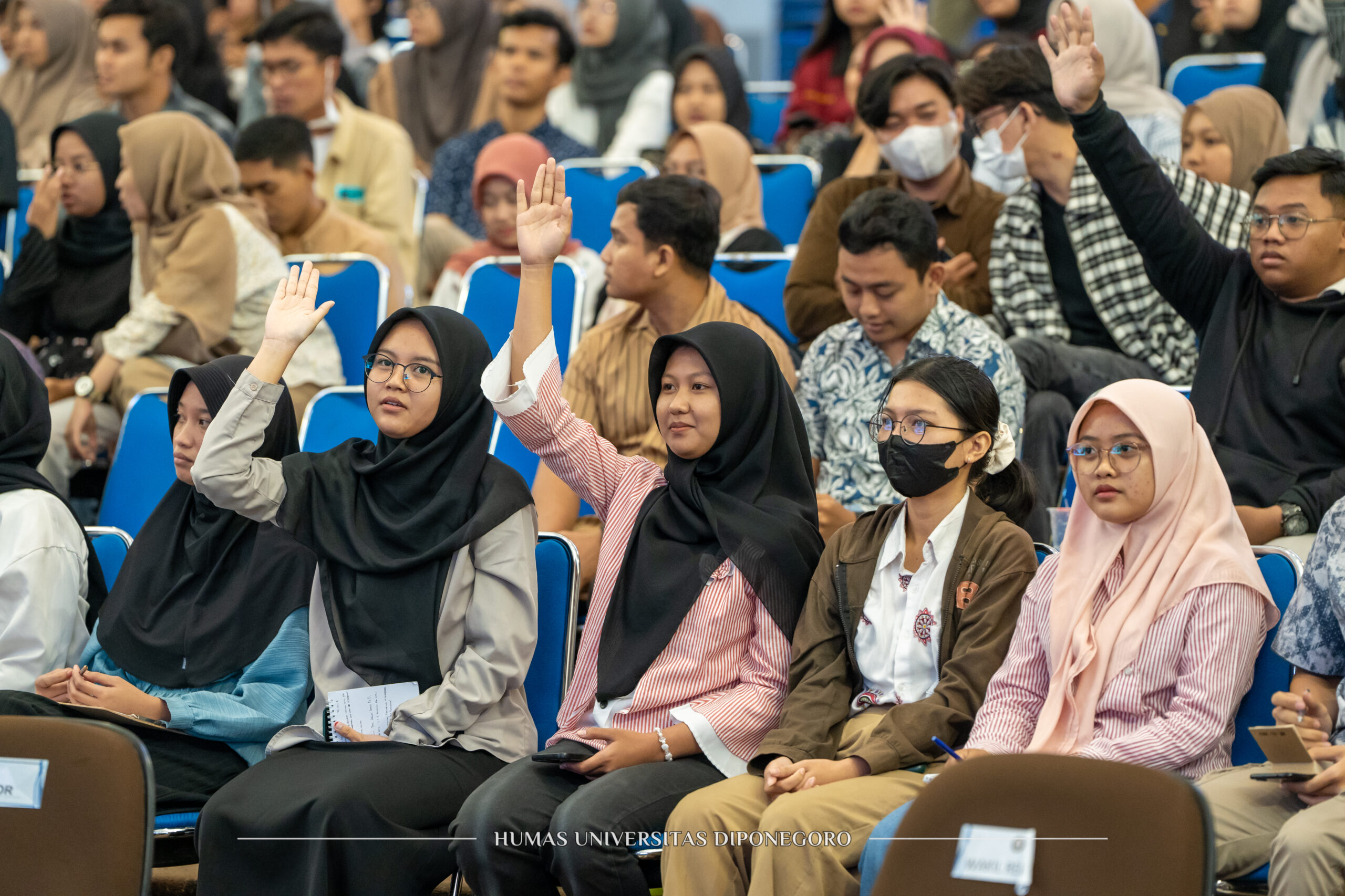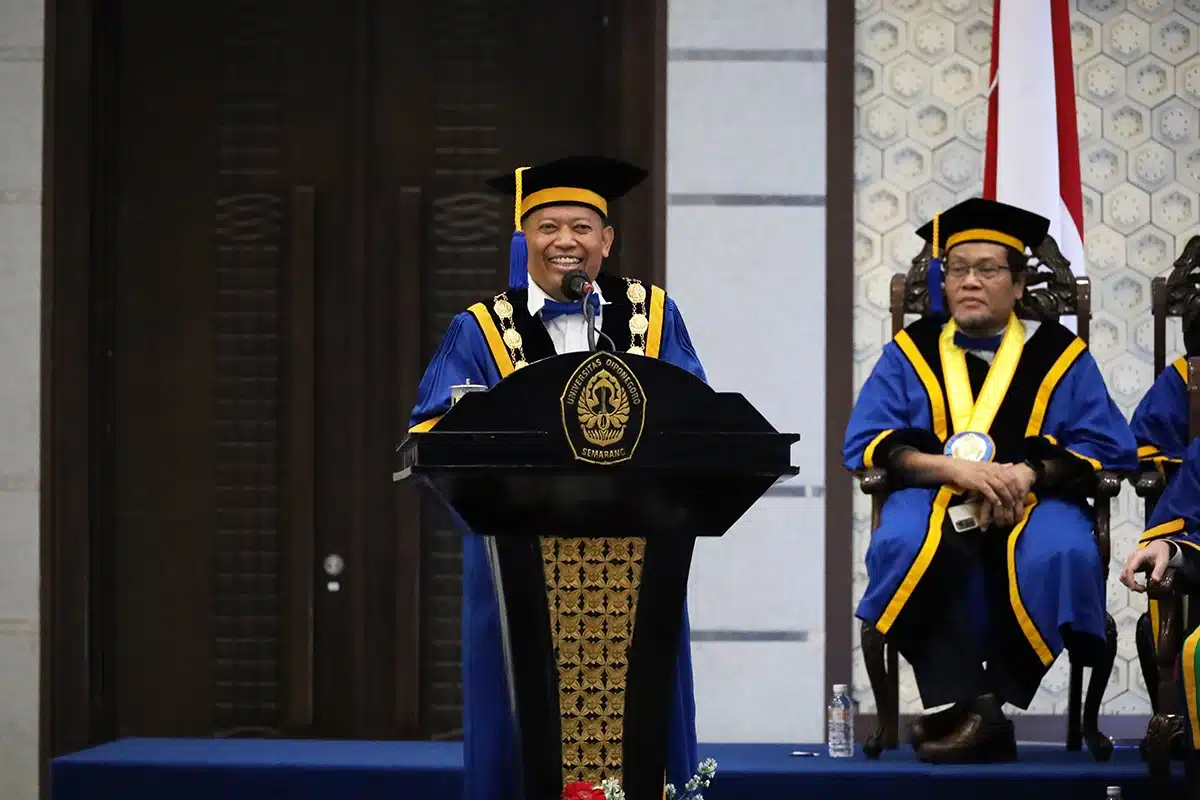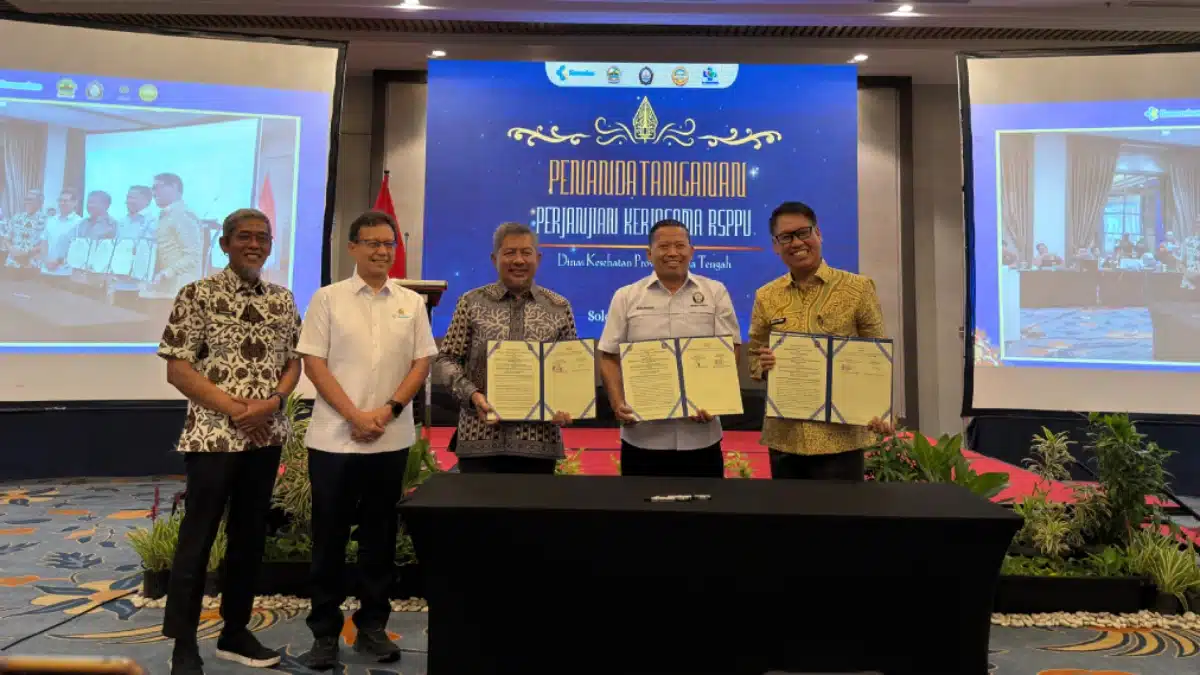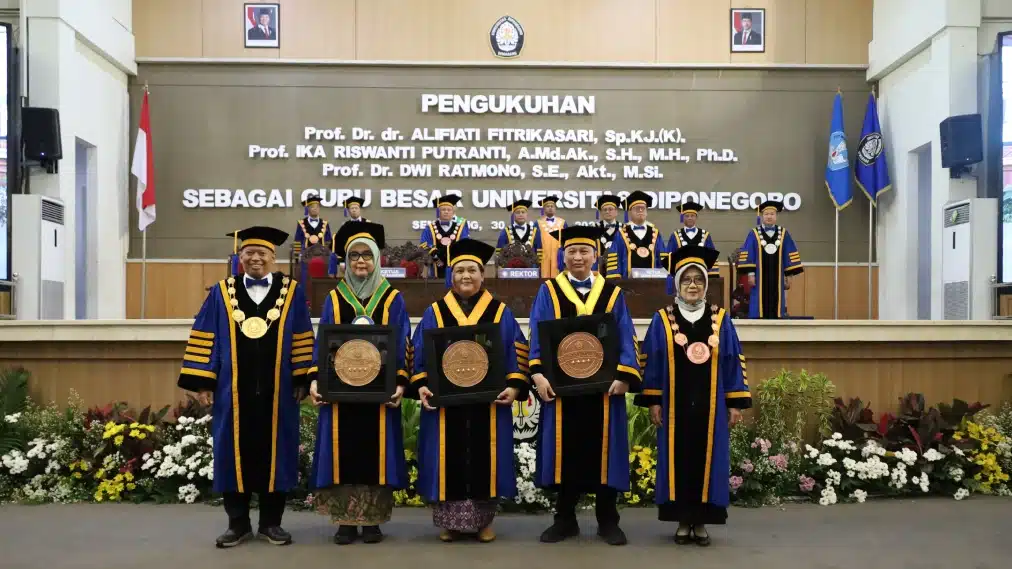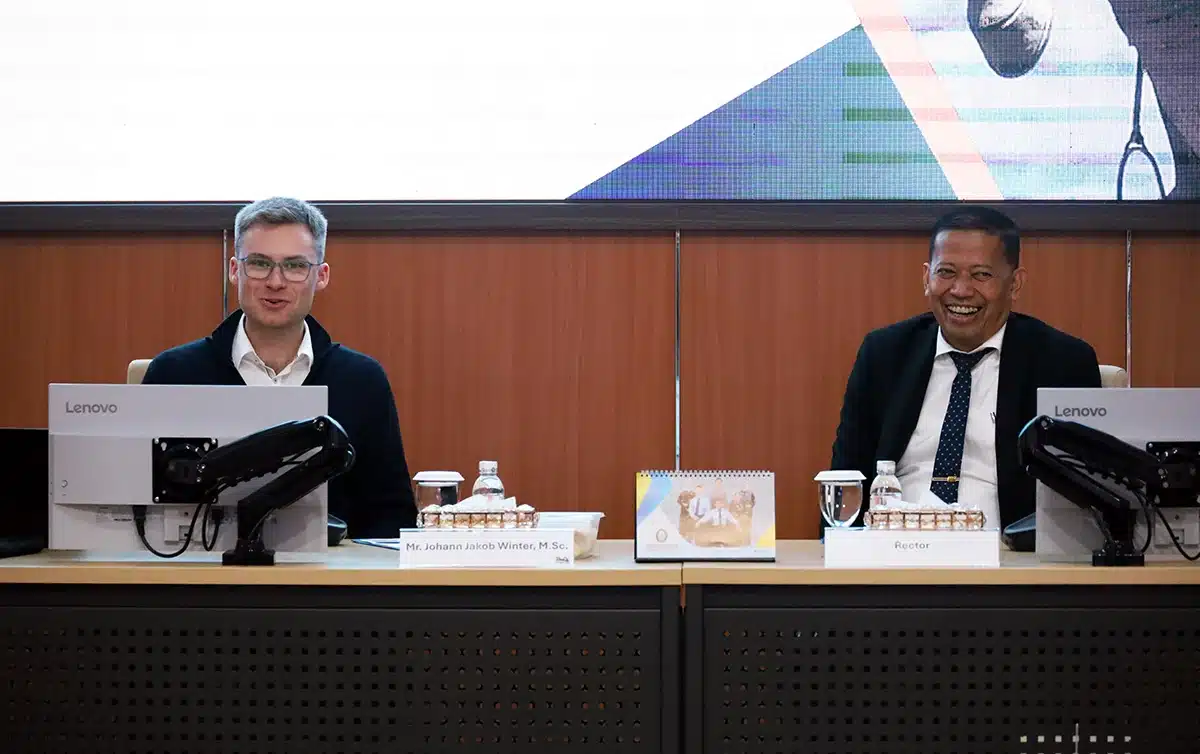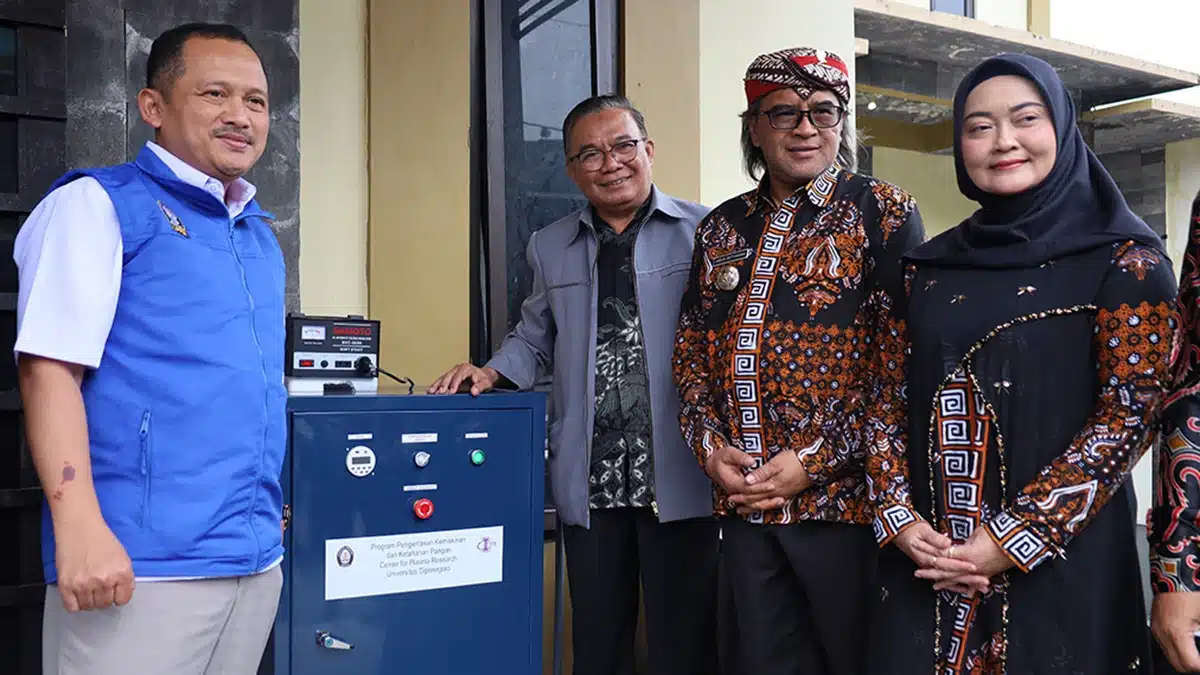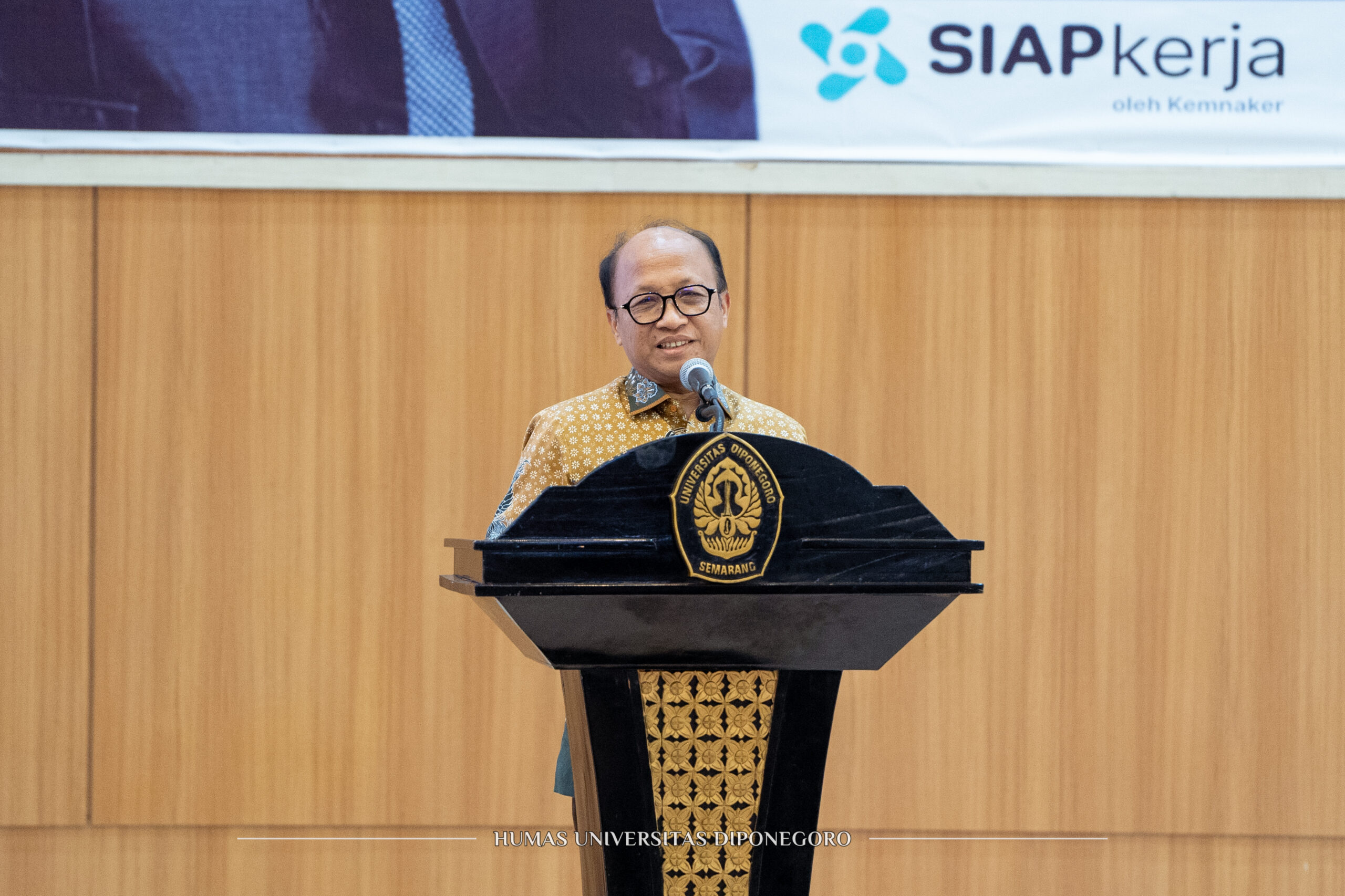The Academic and Student Affairs Bureau of Universitas Diponegoro, in collaboration with the Job Market Center of the Ministry of Manpower of the Republic of Indonesia (Kemnaker RI), organized a General Lecture (Ministerial Lecture) titled “Opportunities and Challenges in the World of Work in the Era of Society 5.0,” featuring keynote speaker Prof. Anwar Sanusi, Ph.D., Secretary General of the Ministry of Manpower of the Republic of Indonesia. The event took place at the Prof. Sudarto, S.H. Building, UNDIP Tembalang Campus, Semarang, on Friday (10/4).
The lecture’s purpose was to provide guidance and preparation for UNDIP students facing the job market. The Society 5.0 era emphasizes the integration of digital technology and artificial intelligence into daily human life.
The event was also attended by the Director of Polteknaker, Prof. Dr. Yoki Yulizar, M.Sc.; the Secretary of the Disnaker Jawa Tengah, Mumpuniati, S.H., M.H.; Acting Head of the Semarang Vocational and Productivity Training Center (BBPVP), Heru Wibowo, S.Sos., M.M.; the Coordinator of the Job Market Center (Pasker ID Team); UNDIP Vice Rector for Communication and Business, Prof. Dr. Adian Fatchur Rochim, S.T., M.T.; several Deans of Faculties/Schools within UNDIP; and the Director of Academic, Student Affairs, and Alumni.
In his speech, the Rector of Universitas Diponegoro, Prof. Dr. Suharnomo, S.E., M.Si. emphasized the importance of the theme of the general lecture delivered by the Secretary General of Kemnaker RI, as it is highly relevant to students’ future choices after graduation—whether to run their businesses or become qualified job seekers.
“The required quality is what we call T-shaped skills, which include your competencies such as creativity, innovation, initiative, leadership skills, and collaborative skills. These are categorized as soft skills,” said Prof. Suharnomo.
“If you want to be successful, you need to focus on two equally important things: developing your competencies and strengthening soft skills. Passion and persistence are also crucial because nothing can beat enthusiasm and determination,” the Rector added.
During the lecture, Dr. Nuryanto, S.Gz., M.Gizi, Vice Dean II of the UNDIP Faculty of Medicine, acting as moderator, mentioned that one of UNDIP’s programs is to improve the Key Performance Indicator (KPI) I, which aims to increase the employment rate of UNDIP graduates. “By holding this event, featuring an expert such as the Secretary General of Kemnaker RI, we hope to provide insights and information related to employment,” said Nuryanto.
Before his presentation, Prof. Anwar Sanusi expressed his pride in meeting UNDIP leaders and their staff who attended the Ministerial Lecture. He also acknowledged the UNDIP students present, who are the future contributors to Indonesia’s 2045 Golden Age and are full of optimism as they prepare to compete in the future world.
Discussing the Society 5.0 era, which coincides with Industry 5.0, Prof. Anwar highlighted both the opportunities and challenges it brings, especially regarding the labor market. “When talking about the challenges and opportunities in the labor sector, we must understand the state of employment in Indonesia, the opportunities and challenges in the digital era, and the Indonesian government’s employment policies,” said Prof. Anwar.
He noted that most Indonesian workers are classified as medium-skilled. The key challenges to anticipate include global megatrends (the labor market climate at the national, regional, and international levels) that will change the global paradigm in the next 20 years, promote pro-environment policies, drive technological adaptation, green infrastructure connectivity development, and digital financial systems.
“Another issue is the mismatch in the job market, such as vertical mismatch (when someone works below their education level) and horizontal mismatch (when one’s educational background does not match their job). In addition, the types of jobs are changing, with more technology adoption and workplace flexibility,” added Prof. Anwar.
In terms of employment policies, three key issues are emphasized: adaptiveness (external factors like labor market challenges, AI, and digitalization), resilience (strength and endurance), and inclusiveness (open to everyone). This has led to five policy directions for the Ministry of Manpower, including vocational education and training reform, optimization of job market information and services, expansion of job opportunities, adaptive social security and worker protection, and harmonious industrial relations.
His advice for young workers is to maintain inner motivation, continuously develop their competencies, and build professional networks. “Success is inevitable for those who are willing to work hard. If you want it, you will achieve it—Man Jadda Wa Jadda,” concluded Prof. Anwar. (DHW – Public Relations)
